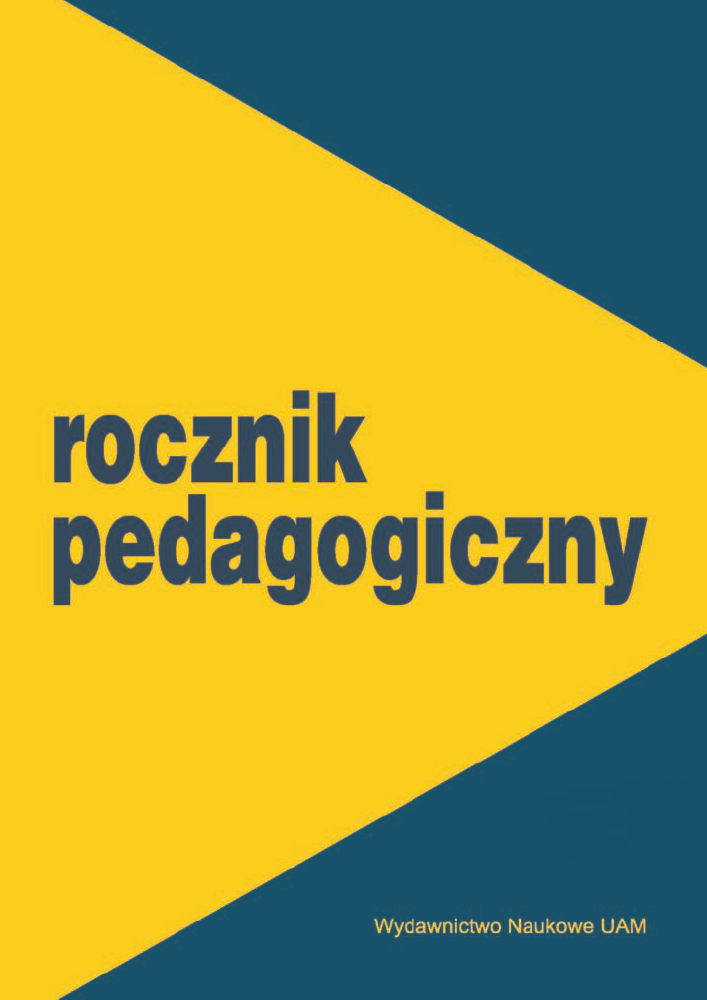Abstract
The article describes planned research on the practice of inclusive education in Poland in 2022-2023. The theoretical basis of the research are educational ideologies and concept of society. The article describes the proposed research method. A qualitative study will be conducted. The research problem of proposed study is answering the question of what an inclusive education space looks like. The aim of the research is to critically analyze the functioning of inclusive classes in the area of school education, which will result in describing the reality and mechanisms present in inclusive education. The research will be positioned in the interpretative paradigm. There was created the category matrix for the critical analysis of discourse which is related to inclusive education. This matrix may be helpful for describing what meanings are given to the elements of the educational process (goals based on an axiological basis, methods, content, methods of control and evaluation).
References
Bourdieu P., Medytacje pascaliańskie, przeł. K. Wakar, Oficyna Naukowa, Warszawa 2006.
Bourdieu P., Practical reason: On the theory of action, Stanford University Press, Stanford 1998.
Bourdieu P., The social structures of the economy, Polity Press, Cambridge 2005.
Creswell J.W., Poth C.N., Qualitative inquiry & research design: Choosing among five approaches, SAGE Publications 2018.
DeWalt K.M., DeWalt B.R., Participant observation: A guide for fieldworkers, AltaMira Press 2002. Flick U., An introduction to qualitative research, SAGE Publications 2011.
Forlin C., From special to inclusive education in Macau (SAR), “International Journal of Inclusive Education” 2011, Vol. 15, No. 4, pp. 433–443. DOI: https://doi.org/10.1080/13603110903079516
Hegarty S., Alur M., Education and children with special needs: From segregation to inclusion, SAGE Publications 2002.
Jacyno M., Iluzje codzienności. O teorii socjologicznej Pierre’a Bourdieu, Wydawnictwo Instytutu Filozofii i Socjologii PAN, Warszawa 1997.
Knasiecka-Falbierska K., Nauczyciel w przestrzeni illusio, [in:] Sprawcy i/lub ofiary działań pozornych w edukacji szkolnej, red. M. Dudzikowa, K. Knasiecka–Falbierska, Oficyna Wydawnicza “Impuls”, Kraków 2013, pp. 187–203.
Kohlberg L., Mayer R., Development as the Aim of Education, “Harvard Educational Review” 1972, Vol. 42, No. 4, pp. 449–496. DOI: https://doi.org/10.17763/haer.42.4.kj6q8743r3j00j60
Krause A., Współczesne paradygmaty pedagogiki specjalnej, Oficyna Wydawnicza “Impuls”, Kraków 2010.
Kwiecińska R., Szymański M.J., Nauczyciel wobec zróżnicowań społecznych, Wydawnictwo Naukowe UP, Kraków 2010.
Labaree D.F., Someone has to fail: The zero-sum game of public schooling, Harvard University Press, Cambridge 2010.
MEN, Rozporządzenie Ministra Edukacji Narodowej z dnia 28 lutego 2019 r. w sprawie szczegółowej organizacji publicznych szkół i publicznych przedszkoli (DzU z 2019 r. poz. 502).
NIK, Kształcenie w szkołach specjalnych, Departament Nauki, Oświaty i Dziedzictwa Narodowego, 2021, https://www.nik.gov.pl/plik/id,23409,vp,26129.pdf [dostęp: 5.11.2021].
Pachociński R., Współczesne systemy edukacyjne, Instytut Badań Edukacyjnych, Warszawa 2004. Pijl S.J., Meijer C.J.W., Hegarty S., Inclusive education: A global agenda, Routledge, London–New York 1997.
Stankowski A., Balukiewicz M. (red.), O trudnej sztuce bycia razem, czyli różne oblicza integracji, Oficyna Wydawnicza “Impuls”, Kraków 2006.
Szumski G., Integracyjne kształcenie niepełnosprawnych: Sens i granice zmiany edukacyjnej, Wydawnictwo Naukowe PWN, Wydawnictwo APS, Warszawa 2013.
Weiss G., Wodak R. (eds.), Critical Discourse Analysis, Palgrave Macmillan, London 2003. DOI: https://doi.org/10.1057/9780230288423
License
Copyright (c) 1970 Karolina Kołodziejczak, Anna Sajdak-Burska

This work is licensed under a Creative Commons Attribution-NonCommercial-NoDerivatives 4.0 International License.

